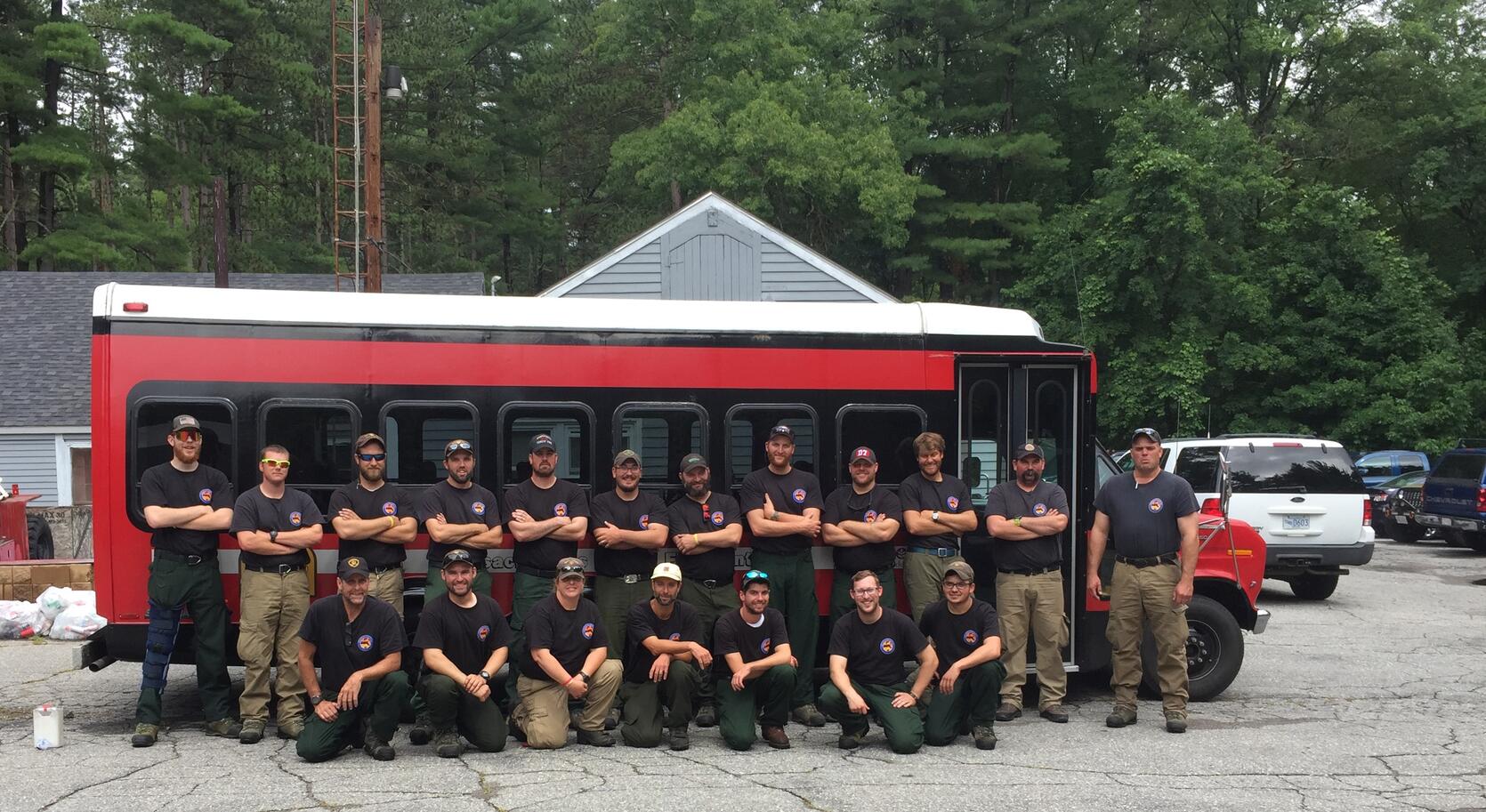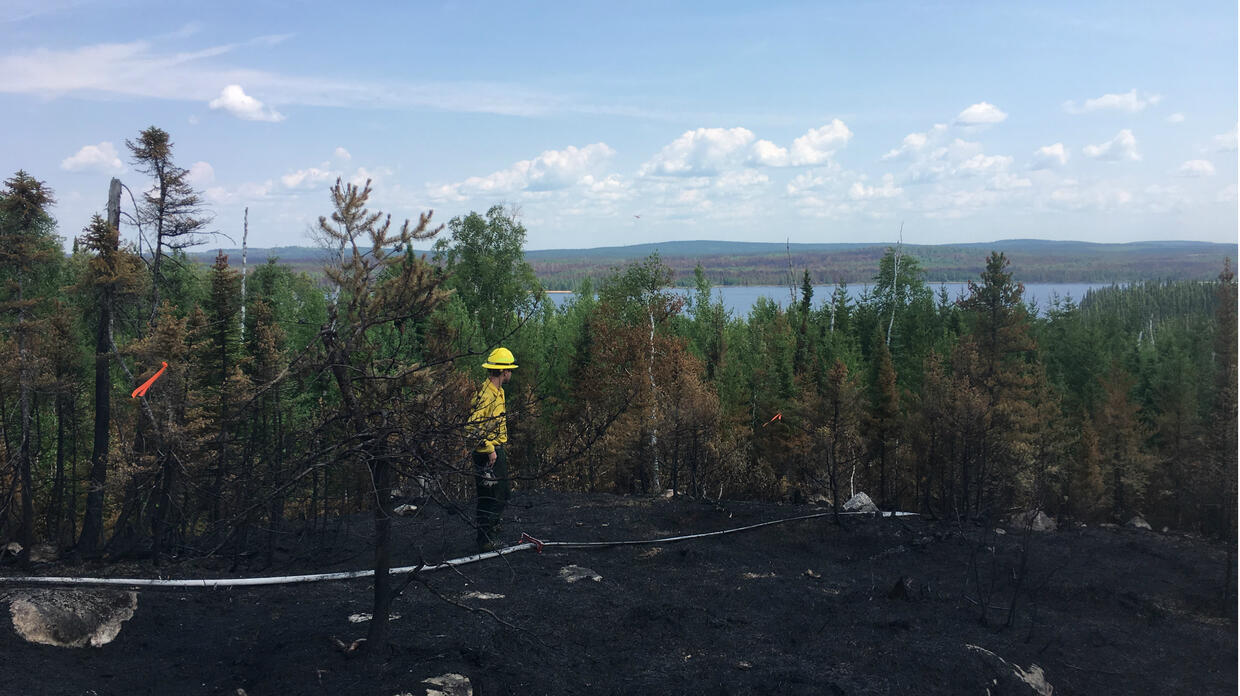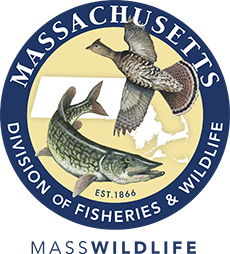- Division of Fisheries and Wildlife
- MassWildlife's Natural Heritage & Endangered Species Program
Media Contact
Media Contact, MassWildlife

Three members of the MassWildlife prescribed fire crew, Fletcher Clark, Chris Connors, and Ben Mazzei, assisted in securing wildfires in Québec Province, Canada for two weeks this July. They were joined by 16 wildland firefighters from the Massachusetts Department of Conservation and Recreation (DCR) to form the Massachusetts Interagency Wildfire Crew- MA#1 and were mobilized through DCR and the Northeast Forest Fire Compact. The wildfire hand crew spent time containing two different wildfires, one near Radisson and the other near Lebel-sur-Quévillon in Québec Province. The crew spent most of their time on a large 24,500-acre fire on Wilson Lake in a remote region of Québec Province. Lightning strikes caused the dry, dense vegetation in the area to ignite and caused the wildfires.
The Massachusetts crew was deployed to these wildfires for two weeks. They worked with other crews to establish helicopter landing sites, coordinate water drops, and secure sections of the fire to keep it from spreading. Securing a section of fire can mean a lot of different kinds of work. The crews set up water pump sites and ran hoses around the section of fire to make sure water was readily accessible to combat the fires. The crew established a fire line around their section. A fire line is essentially a wide path on the ground that is cleared of vegetation, debris, and anything else that can potentially burn to stop the fire from spreading. The crews also went into already-burned areas and put out any hot spots that might have still been smoldering or burning. The crew was helicoptered daily from their base camp to the remote wildfires to perform these duties.
On July 22, the Massachusetts crew returned back to the state safely. There are still many wildfires burning in the province of Québec alone. During the past week, rain has somewhat helped with battling the fires. However, if conditions dry out, the potential for large fires to become active again exists. Québec continues to seek assistance from Canadian provinces and the northeastern United States to help cope with these wildfires.
"Please join us in welcoming these dedicated individuals back from this rugged assignment," says Caren Caljouw, MassWildlife's Prescribed Fire Program Manager. "We are very proud of the assistance they provided to our Canadian neighbors and know the vast experience they gained will translate directly to improving MassWildlife’s prescribed fire program and working as a cohesive team with DCR and other fire management partners."
Massachusetts, along with the other New England states and New York initiated the Northeastern Forest Fire Protection Compact—also called the Northeast Compact—in 1947. The Compact was established to provide a means for member states to cope with wildland fires that may become too intense for a single member state to control. In 1970, the provinces of Quebec and New Brunswick joined, making the Northeast Compact international. Currently, the Northeast Compact members include seven states—Maine, New Hampshire, Vermont, Massachusetts, Rhode Island, Connecticut, and New York—and five provinces—Québec, New Brunswick, Nova Scotia, Newfoundland-Labrador, and Prince Edward Island. The Northeast Compact also includes the Fire Department of New York City, the US Forest Service, the US Fish and Wildlife Service, and the US National Park Service.


